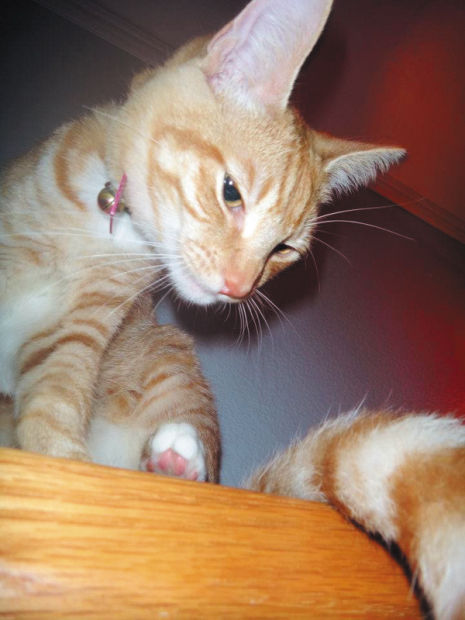LIHUE — The Kauai County Council approved a bill that will require pet owners to license their cats and set up spaying and neutering requirements for cats allowed to roam outside. The 4-2 vote was made during the seven-member board’s
LIHUE — The Kauai County Council approved a bill that will require pet owners to license their cats and set up spaying and neutering requirements for cats allowed to roam outside.
The 4-2 vote was made during the seven-member board’s Wednesday meeting.
Councilmen Ross Kagawa and Mel Rapozo cast the two dissenting votes.
“I cannot see licensing cats and I can’t see owners being willing to bring their cats in,” Kagawa said before casting his vote. “Cats are different than dogs. I think homeowners will find that, if their cats get taken to the humane society, the amount of people who will go to recover and license their cats is going to be very small.”
Rapozo said he understood the purpose of the bill but explained that passing the law at this time is premature.
It would have been more appropriate, he said, to wait until the county’s nine-member Feral Cat Task Force develops a set of recommendations to address the island’s growing feral cat population and presents it to the County Council.
That committee, convened for the first time last year, is scheduled to meet on Feb. 10 and must submit its findings to the County Council by the first week of April, County Chair Jay Furfaro said.
“It’s not a no, no — it’s just that I’m not ready because I have yet to see the recommendations,” Rapozo said. “What happens if we pass a bill a month and a half before we’re given the recommendations and the recommendations come out and say this is not right? Basically, we’re undermining the task force that we commissioned to do the recommendations.”
Feral Cat Task Force member Makaala Kaaumoana said she supports the bill with reservations because it only addresses part of the issue.
There is, she said, “a special kuleana” for residents to take care of the island’s endemic natural resources.
“I think this licensing is a good way for us to provide outreach and education to our community about the reasons for that, the seriousness of this issue and understanding our responsibility as citizens of this planet and this island,” Kaaumoana said.
Kauai Humane Society Executive Director Penny Cistaro said feral cats are deliberately excluded from the bill because the root of the feral cat problem on Kauai are free-roaming unsterilized cats that do not have an owner.
“There are people who are willing to take responsibility and ownership for their cats and those are the ones who this ordinance will target,” Cistaro said.
Councilwoman JoAnn Yukimura, the bill’s introducer, said the law is important because the licensing fees will provide KHS with revenues to address the number of domesticated and feral cats brought in to the Puhi facility.
“Every dollar is so important in this really tight budget and the things we would have to cut off in order to pay $17,000 or $67,000, whatever it is, is going to be very, very difficult,” Yukimura said. “This is a user fee — this is not taxpayer’s money. This is one of the ways where we should be looking to get more revenue.”
The organization’s budget presented to the County Council last year designated about $340,000 to handle cats, Cistaro said. The humane society’s costs to address feral cats, she said, is about $160,000.
In the first year, the cat licensing fee is estimated to generate about $23,000 in revenue for the humane society, Cistaro said.
There is also a concern that the Feral Cat Task Force may not come to an agreement by April, Yukimura said. It’s a possibility that, she explained, could force the County Council to grapple with the issue.
Councilman Gary Hooser was absent from the meeting and did not vote on the measure.
• Darin Moriki, county government reporter, can be reached at 245-0428 or dmoriki@thegardenisland.com.


